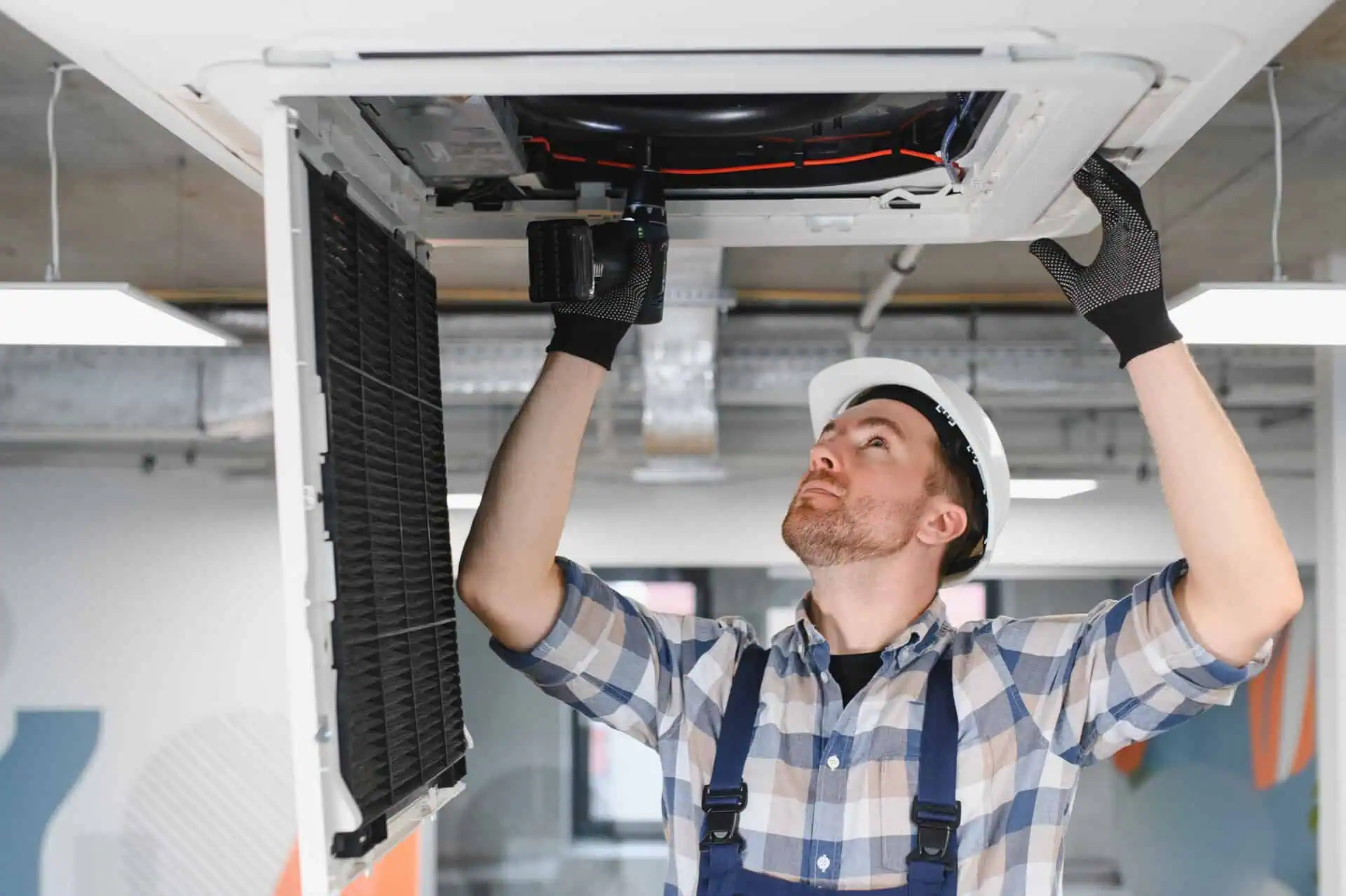HVAC contractors in Ohio face unique risks every day. From installing complex heating and cooling systems to working on customer properties, the job comes with its fair share of liability concerns. While general liability insurance is an essential part of any contractor’s coverage, it may not be enough to fully protect an HVAC business from all potential risks. Understanding the different types of insurance policies available can help contractors safeguard their operations, employees, and financial stability.
What Risks Do HVAC Contractors Face in Ohio?
HVAC contractors work with heavy equipment, electrical systems, and hazardous materials, which can increase the potential for accidents and damage. Some of the most common risks HVAC businesses encounter include:
- Property damage: Accidental damage to a client’s home or business during an installation or repair.
- Injuries on the job: Technicians work in risky environments, including heights, confined spaces, and extreme temperatures.
- Equipment breakdown: Expensive HVAC tools and machinery can malfunction or be stolen, affecting business operations.
- Business interruptions: Severe weather, supply chain delays, or unexpected incidents can halt work and cause financial strain.
A well-rounded insurance plan can help HVAC contractors address these risks and keep their businesses running smoothly.
Is General Liability Insurance Enough for HVAC Contractors?
General liability insurance is an important policy for HVAC contractors, but it primarily covers third-party claims for bodily injury, property damage, and advertising-related issues. While this coverage is valuable, it does not provide protection for some of the biggest risks an HVAC business may face.
For example, general liability does not typically cover:
- Employee injuries
- Damage to business-owned equipment
- Lost income due to business interruptions
- Errors in professional services
To build a stronger financial safety net, HVAC contractors may need additional policies that address these gaps in coverage.
What Types of Insurance Do HVAC Contractors Need?
In addition to general liability, HVAC contractors can benefit from several other insurance policies designed to provide broader protection.
Workers’ Compensation Insurance
Workers’ compensation insurance can provide benefits for employees who experience work-related injuries or illnesses. Since HVAC work involves lifting heavy equipment, exposure to chemicals, and electrical hazards, having workers’ compensation coverage can be an important consideration for protecting both employees and business owners.
Commercial Property Insurance
HVAC contractors often invest in expensive tools, inventory, and equipment. Commercial property insurance may help cover the cost of repairing or replacing business property that is damaged due to covered events like fire, theft, or storms. Whether a contractor operates from a storefront or stores equipment in a warehouse, this policy can be an essential component of a comprehensive insurance plan.
Business Interruption Insurance
When an unexpected event forces an HVAC contractor to temporarily halt operations, business interruption insurance may help replace lost income. This type of coverage is especially important for Ohio contractors who may face disruptions due to severe weather or supply chain issues.
Commercial Auto Insurance
HVAC businesses often rely on vans and trucks to transport tools and equipment to job sites. Personal car insurance typically does not cover vehicles used for business purposes, making commercial auto insurance a necessary policy for HVAC contractors. It may provide coverage for vehicle-related accidents, damage, and liability claims that occur while using business-owned vehicles.
Professional Liability Insurance (Errors & Omissions)
Even the most experienced HVAC contractors can make mistakes. Professional liability insurance, also known as errors & omissions (E&O) insurance, may help cover claims related to faulty installations, design flaws, or service errors. This policy can be beneficial for HVAC contractors who provide consultations, system designs, or complex installations that require technical expertise.

How Does Location Impact HVAC Insurance Costs in Ohio?
Insurance premiums for HVAC contractors can vary based on several factors, including location. In Ohio, factors that may influence insurance costs include:
- Weather conditions: Severe storms, extreme cold, and flooding can increase risks for HVAC businesses.
- Urban vs. rural areas: Contractors operating in cities may have different coverage needs than those working in rural communities.
- Business size and revenue: The number of employees, annual revenue, and scope of services can affect premium costs.
- Claim history: Businesses with fewer past claims may qualify for lower insurance rates.
Since every HVAC business is different, working with an experienced insurance provider can help contractors find the right coverage for their specific needs.
Can HVAC Contractors Bundle Insurance Policies?
Many HVAC contractors choose to bundle multiple policies into a Business Owner’s Policy (BOP). A BOP typically combines general liability, commercial property, and business interruption insurance into one package, offering a more streamlined and cost-effective insurance solution.
Bundling policies can:
- Simplify policy management by consolidating multiple coverages under one provider.
- Potentially reduce costs through multi-policy discounts.
- Ensure comprehensive protection by addressing multiple risks with one policy package.
HVAC contractors in Ohio should explore whether a BOP or a customized policy package suits their business model.
What Steps Can HVAC Contractors Take to Lower Insurance Costs?
HVAC contractors can take several proactive steps to help reduce insurance premiums while maintaining strong coverage:
- Implement safety programs: Reducing workplace injuries through proper training and safety measures may lead to lower workers’ compensation costs.
- Invest in secure storage: Keeping valuable tools and equipment in a secure facility may help prevent theft-related claims.
- Maintain a clean claims history: Avoiding frequent claims can sometimes result in better rates from insurance providers.
- Review policies annually: Regularly evaluating coverage needs can help HVAC contractors avoid overpaying for unnecessary policies while ensuring they are adequately protected.
Final Thoughts: How Can HVAC Contractors in Ohio Get the Right Coverage?
While general liability insurance is a crucial foundation, HVAC contractors in Ohio may need additional coverage to fully protect their business, employees, and equipment. Understanding the various policies available and working with an experienced insurance provider can help contractors tailor their coverage to their unique risks.
By evaluating business needs, bundling policies, and implementing risk management strategies, HVAC contractors can secure comprehensive insurance protection that aligns with their operations.
For more information on HVAC contractor insurance in Ohio, contact Kirtley Insurance today to explore coverage options tailored to your business.





